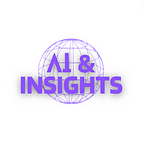Ethical considerations for AI development and deployment
AI development and deployment are important aspects of creating intelligent systems that can improve many aspects of our lives. However, it is important to consider the ethical implications of AI and ensure that the systems we create are safe, fair, and beneficial to all.
The potential for bias.
One of the main ethical considerations for AI development and deployment is the potential for bias. AI systems can inadvertently perpetuate existing biases in society if the training data is not properly curated. This can result in unfair or discriminatory outcomes for certain groups of people. To combat this, it is important to ensure that the data used to train AI systems is diverse and representative of the population it will be used on.
Transparency of AI systems
Another important ethical consideration is the transparency of AI systems. It is important for users to understand how AI systems make decisions and what data they are using to do so. This can help users to trust the system and understand any limitations or biases it may have.
Potential impact of AI systems on society and the workforce
Additionally, it is important to consider the potential impact of AI systems on society and the workforce. As AI systems become more advanced, they have the potential to automate many tasks and industries, which could lead to job displacement. It’s important to ensure that the benefits of AI are shared widely and that the potential negative effects are mitigated.
AI development and deployment has the potential to bring significant benefits to society, but it is important to consider the ethical implications of these systems and take steps to ensure that they are safe, fair, and beneficial to all.
Discriminatory outcomes.
One example of ethical considerations in AI development and deployment is in the field of facial recognition technology. This technology can be used for a variety of purposes, such as security and surveillance, but it has been shown to be less accurate for people with darker skin tones. This is because the majority of the training data used to develop the technology was of people with lighter skin tones. This is an example of how bias in training data can result in discriminatory outcomes.
The use of AI in decision making in the criminal justice system.
AI systems that are used to predict recidivism or assess the risk of defendants have been found to perpetuate racial biases. This is because the data used to train these systems is often based on past criminal justice practices that themselves are biased. This highlights the importance of ensuring that the data used to train AI systems is diverse and representative of the population it will be used on.
AI-powered diagnostics
In the field of healthcare, AI-powered diagnostic tools have been shown to have better outcomes than human doctors in certain cases. However, this technology should be developed and deployed in a way that is transparent and explainable so that patients can trust the outcomes and make informed decisions about their health.
AI-powered automation
In industry, AI-powered automation has the potential to displace human workers and could lead to significant job losses. To mitigate this, it’s important to ensure that the benefits of AI are shared widely and that policies are in place to retrain and support workers who may be impacted by automation.
These examples illustrate how important it is to consider the ethical implications of AI development and deployment and to take steps to ensure that the systems we create are safe, fair, and beneficial to all.
AI development and deployment are rapidly advancing fields that have the potential to bring significant benefits to society. However, as we create more advanced and capable AI systems, it is important to consider the ethical implications of these systems and ensure that they are safe, fair, and beneficial to all.
Overall, as we continue to push the boundaries of what is possible with AI, it is essential that we consider the ethical implications of these systems and take steps to ensure that they are safe, fair, and beneficial to all. As AI developers and deployers, we have a responsibility to consider the potential impact of our work on society and to act in the best interests of all stakeholders.
